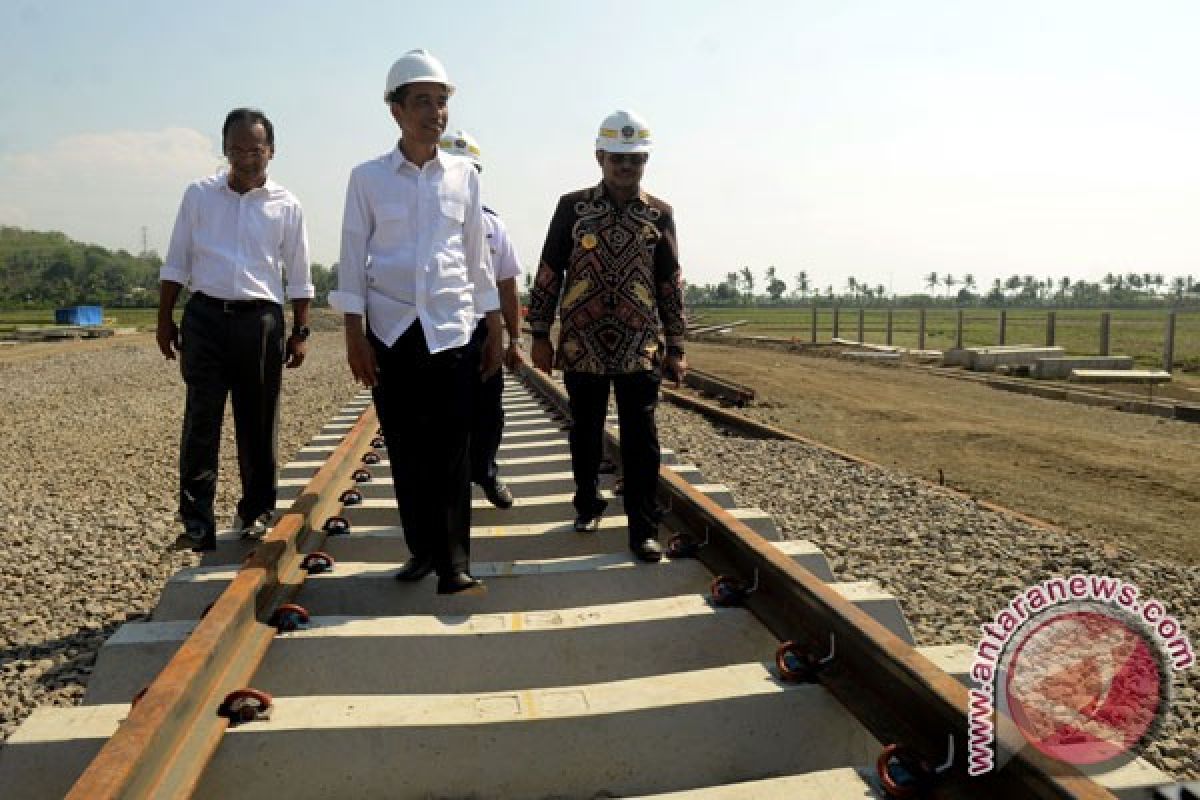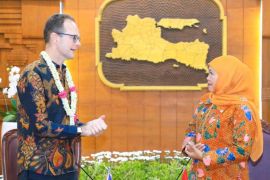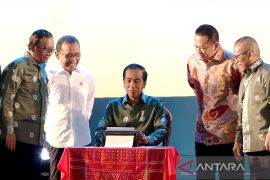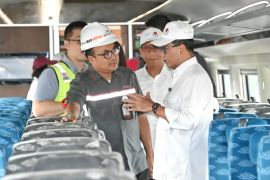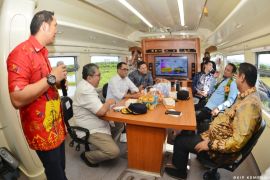We have started developing railway projects in a number of regions in Sulawesi and Sumatra."Jakarta (ANTARA News) - The Indonesian government is focusing on developing railway projects outside Java in an effort to improve transportation and establish connectivity among regions across the country.
Regions outside Java are being accorded priority in railway development as part of the governments endeavor to ensure equitable development and boost national economy through increased connectivity among the regions.
"The railway projects being taken up on priority are not in Java. In fact, priority is being accorded to eastern regions. Therefore, we want to first complete the work on the Trans Sumatra and Trans Sulawesi projects as soon as possible," Director General of Railways Prasetyo Boeditjahjono stated at a function in Jakarta on Thursday.
In order to implement the Trans Sumatra and Trans Sulawesi railway projects, the government is expected to cooperate with China. This month, the Directorate General of Railways will submit documents containing details of the Trans Sumatra and Trans Sulawesi projects to China.
The Chinese government will provide loans for financing these railway projects worth Rp80 trillion, but it will first study the project in detail.
"They (China) are interested in providing loans worth Rp40 trillion to Indonesia for the two projects, Trans Sumatra and Trans Sulawesi," Prasetyo Boeditjahjono informed.
The Chinese government had earlier asked for documents related to studies carried out by the Transportation Ministry on the projects.
"We have collected the documents and promised to hand these over to them this month," the director general explained after receiving the Chinese ambassador to Indonesia on Thursday.
He informed that China would study the documents. "They will possibly assess these first because the documents are related to the results of the study carried out more than five years ago. So, these need to be reviewed," noted Prasetyo.
While feasibility studies have been conducted for some projects, that did not happen in case of others. In case of some, ground planning did take place and detailed engineering designs (DED) were prepared.
The Rapat-Duri-Pekan Baru section of the Trans Sumatra project is at the DED stage.
According to Prasetyo, the government hoped that China would not take more than one year to arrive at an assessment of the projects. "We hope China would find determine which of the projects it is interested in and provide loans for it."
President Joko Widodo (Jokowi) said early this year that the government had actually started the development of some sections of the railway projects in Sumatra and Sulawesi.
"We have started developing railway projects in a number of regions in Sulawesi and Sumatra. I hope that a project will also be started this year in Papua. If that does not happen in the first semester, then it would surely happen in the second half of 2016. The work should begin this year," President Jokowi said as he opened a limited cabinet meeting in Jakarta on January 4.
Jokowi on November 25 last year, inspected the construction of the first phase of the 2000-kilometer (km) Makassar-Manado Trans Sulawesi Railway Project.
The first phase of the Trans Sulawesi section stretches 145 km from Makassar, the South Sulawesi provincial capital, to Parepare Municipality.
"The railway service is expected to commence operations in 2018 and will connect the two capitals," the President told newsmen after the inspection of the first phase.
On a separate occasion, Hemi Pamurahardjo, the public information and communication bureau head of the Transportation Ministry, said the government had offered Japan to cooperate in the Trans Sumatra and Trans Sulawesi railway projects.
But it preferred to upgrade the train speed on Northern Javas railway network as it could showcase its latest technology.
The directorate general of railway affairs earlier revealed that Japan had expressed interest to revitalize Northern Javas railway network. It expressed its interest to revitalize the Jakarta-Surabaya railway network to increase the train speed from the current 80 kilometers (km) per hour to 150 km per hour.
If the speed is upgraded to 150 km per hour, then the Jakarta-Surabaya sections could be covered in five hours.
Regarding the Jakarta-Surabaya railway network, the Directorate General of Railway is still waiting for a decision by President Jokowi, who is currently on a visit to attend the Group of Seven meeting in Japan.
"We are still awaiting the return of the president. The (transportation) minister has not informed us anything about it," Director General of Railways Prasetyo Boeditjahjono stated at a function in Jakarta on Thursday.
Prasetyo said if Japan realized its financing for the revitalization of the Jakarta-Surabaya railway route in Northern Java, the project could be carried out soon.
However, the director general noted that the Jakarta-Surabaya railway project was not a priority program in the governments 2015-2019 strategic railway development plan.
President Jokowi is currently attending the Group of Seven meeting in Japan.
Cabinet Secretary Pramono Anung ensured that as part of the agenda, the financing of the Patimban Port, which replaced the Cilamaya Port, would be discussed with Japan. He did not ascertain whether the revitalization of the Jakarta-Surabaya railway network would also be discussed.
Hemi Pamurahardjo was also not able to confirm whether the documents on the revitalization of the Jakarta-Surabaya railway network were taken to Japan and would be discussed during the presidents state visit to that country.
"I do not have the data and documents on the matter. However, there is the possibility (for the projects to be discussed during the presidents visit in Japan)," he stated.
(T.A014/INE/KR-BSR/B003)
Reporter: Andi Abdussalam
Editor: Priyambodo RH
Copyright © ANTARA 2016
